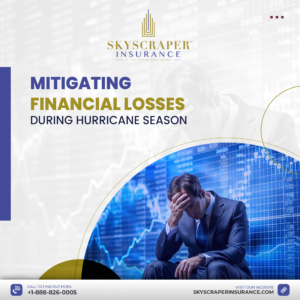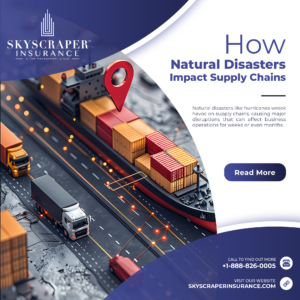COVID-19 safety is just one area employers should focus on to ensure a safe and claims-free holiday celebration.
Just because 2020 has been a trying year doesn’t mean there isn’t cause for insurance companies to celebrate.
2020 has been…a year. And while it’s certainly been a trying 12 months, there’s still reason for employers to have a holiday party “2020 style.” COVID-19 has changed how employers and employees interact, which means holiday parties may look a bit different this year. Employers in some states may be able to have in-person holiday parties, likely in an open-air venue with enough space to spread out; however, most employers will likely have to prepare for virtual holiday parties this year.
Keep safety a top priority
Keeping safety a top priority will be a main focus for those planning events this year. Make sure to review coronavirus resources, CDC recommendations, and adhere to state and local mandates and protocols, and be aware that these are subject to change. Health scans, mask requirements, and the presence of hand sanitizer stations may be required for an in-person event. These precautions and requirements should be communicated to guests prior to the event.
Some states may require masks to be worn at all times, while some may only require masks in certain situations (i.e. When social distancing cannot be achieved).
Heat lamps
If you’re holding an in-person event, consider an open-air option (depending on your location), and/or a location that allows enough space to spread out. While this may be more easily achievable for organizations in warmer climates, it’s still possible in states with cooler temperatures. Many open-air venues likely have an abundance of heat lamps, which will keep your guests warm during the event. However, heat lamps can come with their own set of issues and dangers. Employers that use heat lamps should ensure they meet applicable safety standards and may wish to consult with a safety expert in this regard. If heat lamps will be supplied by the venue or other third party, the employer should address these issues with the venue or supplier to ensure attendees’ safety and to protect the employer’s interests in the event there is an accident or incident and resultant claim.
Open-air venues (in most states) tend to have different capacity restrictions than indoor venues, usually accommodating more guests. These capacity restrictions are subject to change, and can likely change with very little notice, based on testing, potential COVID-19 spikes in the local area, and more. Be sure to check with your venue on how they handle these adjustments. Your venue should help communicate its policies in accordance with capacity restrictions and state/local requirements.
Alcohol
Alcohol is often served at many holiday parties, but be sure to consider how alcohol may impact your in-person holiday party. If you’re serving alcohol, be sure to serve food as well! The presence of food can keep your attendees from getting too intoxicated. And, if you have employees under 21 in attendance, make sure they don’t drink, as this could quickly become a greater issue. Provide of-age employees with a wristband, so bartenders know who to serve, or contact your venue and ensure guests are carded whenever they order an alcoholic beverage.
Drink tickets can also help limit the amount of alcohol each attendee consumes at an event. There are never excuses for poor behavior, but alcohol can often contribute to dangerous behavior, which can reach as far as sexual harassment and/or assault, for example. Protect your employees and your organization by managing how much alcohol employees can consume. Non-transferrable, individualized drink tickets that limit how many each person may have (and that cannot be given to or shared with others) can help you make sure that no one drinks too much at the holiday party this year.
Insurance details
Giving your worker’s compensation and general liability insurance carriers a call to discuss the event is also advisable, as events that are mandatory or even just encouraged can be considered “work” if someone were to be hurt or an incident occurs.
It’s also important to ensure employees understand the employer’s expectations for conduct at the event and that employees still need to keep their holiday spirit in check — an employer should not tolerate behavior at a party or event that would not be allowed at work. Employers are encouraged to have policies in their employee handbooks or employee information booklets that communicate expected behaviors and policies around company events.
Decorations
Take some time to think about decorations. While massive and elaborate decorations make a statement and likely look awesome, they can also be dangerous. Decorations can fall, and if they’re large, they can potentially be hazardous in the event they hit an employee. This could cause your holiday party to come crashing down, literally and figuratively. Be sure to check your liability policies and those of your venue to make sure you protect your organization and your employees. Employers would also do well to ensure that decorations are not specific to any particular holiday or religion to avoid potential religious or other discrimination concerns.
Keeping safety a top priority may also mean just holding a virtual event — and that’s okay! In fact, that’s likely what most employers will opt for this year.
Remember to pay employees accordingly
Remember that employees should be paid for the work they do, which may mean attending a holiday party — virtual or otherwise. Employers should review policies in advance of the event. If non-exempt employees are required or even strongly encouraged to attend, for example, the employer will likely need to ensure that their time in attendance is recorded as working time, develop the means to track it and compensate employees accordingly.
Remember, virtual attendance is still attendance and should be compensated accordingly!
And, while the Families First Coronavirus Response Act (FFCRA) may not impact a holiday party directly (and note the law will sunset on 12/31/2020), employers should familiarize themselves with the Act in the event paid or other sick leave benefits overlap with any event.
Find something to celebrate
The annual party has always been a great opportunity to reflect at the end of a year, bond with co-workers, and regroup and prepare for the upcoming year. Just because 2020 has been a trying year doesn’t mean there isn’t cause to celebrate. Find a win from 2020, whether it be new hires, a new client, a positive change in culture, or something else — focus on the good and celebrate!
In addition to celebrating a tangible win, leadership should also recognize the work their employees have put in this year. Many have had to embrace working remotely, and a large number of employees have likely had to balance health, remote learning for children, and their work obligations. Take the time to recognize the adjustments most teams have had to make this year.
Have fun!
Remember, the point of the holiday party is to reflect on the previous year, create a memorable experience, and communicate plans for the next year! Make this an enjoyable (and safe) experience for your employees, adhere to state and local guidelines and best practices, and…have fun!




